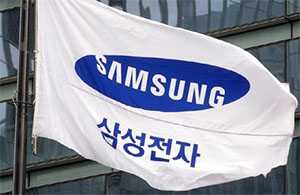Samsung's Reliance on Semiconductors Grows Alarmingly
01 August, 2018

Samsung Electronics is suffering slow sales of its Galaxy S9 smartphone and becoming increasingly reliant on sales of memory chips.
Samsung said Tuesday that second-quarter sales fell three percent to W58.5 trillion on-quarter while operating profit dropped five percent to W14.9 trillion (US$1=W1,120). That ended six straight quarters of earnings growth.
The tech giant admits that sales of the Galaxy S9 smartphone fell below expectations. To make matters worse, Chinese panel makers have been flooding the market with cheaper flat screens, hurting Samsung's earnings.
The only solace came from a record operating profit in the semiconductor business of W11.6 trillion. But that means Samsung relies on computer chips for an alarming 78 percent of its operating profit. Samsung's smartphone revenues, by contrast, plunged 20 percent on-year to W24 trillion, and operating profit nosedived 35 percent to W2.7 trillion.
The culprit is the Galaxy S9, which hit store shelves in mid-March but disappointed consumers with a lack of innovative features amid intensifying competition from Apple and cheap-and-cheerful Chinese rivals.
Samsung said in a telephone conference with investors that it now wants to focus all of its efforts on the success of the Galaxy Note 9 set for release on Aug. 9. The Note 9 has twice the memory as its predecessor but will be priced more or less the same, though it seems to have few other distinguishing features.
Analysts expect Samsung's operating profit to reach over W17 trillion in the third quarter thanks to the booming semiconductor market. But risks lie ahead beyond the end of this year.
Samsung itself refrained from forecasting chip market conditions next year, but analysts think rising OLED sales could rescue the company's earnings.
TAG(s):
